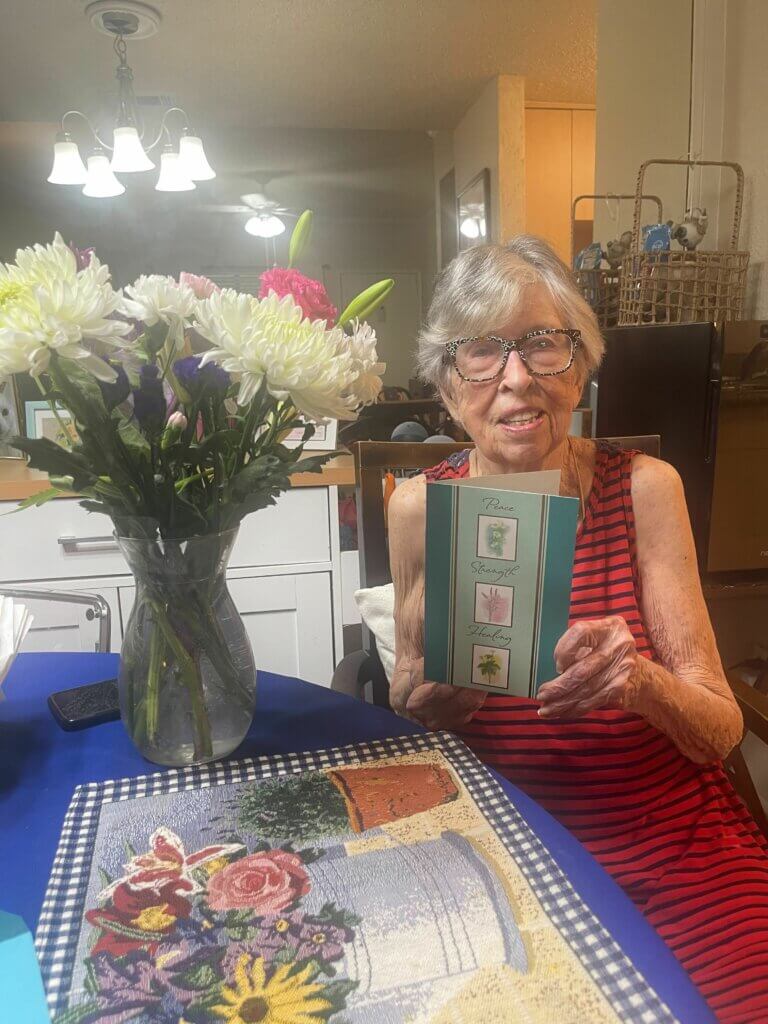Learn about the symptoms and causes of sundowning, a phenomenon commonly observed in senior citizens.
The Definition of Sundowning
- Sundowning is not a disease but a cluster of symptoms.
- It often occurs in the evening and can impact seniors with dementia.
- The exact cause is not fully understood but is related to disruptions in the circadian rhythm.
Sundowning refers to a condition in which senior citizens experience increased confusion, agitation, and restlessness during the evening hours, often extending into the night. It is commonly observed in individuals with Alzheimer’s disease or other forms of dementia. Sundowning can make it challenging for caregivers to provide adequate care and can significantly impact the quality of life for both the senior citizen and their family members.
The exact cause of sundowning is not yet fully understood. However, researchers believe that it may be related to disruptions in the circadian rhythm, which regulates sleep-wake cycles. Changes in lighting, hormonal imbalances, and fatigue can also contribute to the development of sundowning symptoms.
It is important to note that sundowning is not a disease itself, but rather a cluster of symptoms that can occur in the late afternoon or evening. These symptoms can vary from person to person and may include increased confusion, agitation, anxiety, aggression, restlessness, pacing, disorientation, hallucinations, and sleep disturbances. It is vital for caregivers and healthcare professionals to recognize and address these symptoms to ensure the well-being of senior citizens.
If you suspect that your loved one is experiencing sundowning, it is recommended to consult with a healthcare professional for proper evaluation and guidance. Understanding the definition of sundowning is the first step towards managing this condition effectively.
Discover effective strategies to cope with sundowning and create a peaceful and safe environment for your loved one.
Symptoms of Sundowning
- Symptoms include confusion, anxiety, aggression, restlessness, and sleep disturbances.
- Not all seniors with dementia experience sundowning, and symptoms vary.
- Calming activities, familiar environments, and routines can help manage symptoms.
The symptoms of sundowning can vary from person to person, but they generally manifest during the late afternoon or evening hours. It is important for caregivers and family members to be aware of these symptoms in order to provide appropriate support and care. Some common symptoms of sundowning include increased confusion, agitation, anxiety, aggression, restlessness, pacing, disorientation, hallucinations, and sleep disturbances.
These symptoms can be distressing for both the senior citizen experiencing them and their caregivers. It is crucial to remain calm and patient when dealing with sundowning episodes. Creating a soothing and familiar environment, establishing a consistent daily routine, and minimizing environmental triggers can help alleviate some of the symptoms. Additionally, engaging in calming activities such as listening to soft music, engaging in gentle exercises, or providing reassurance and comfort can also be beneficial.
It is important to note that not all senior citizens with dementia will experience sundowning, and the severity of symptoms can vary. Each individual is unique, and their experience with sundowning may differ. By understanding the symptoms of sundowning, caregivers can better support and assist senior citizens in managing this challenging condition.
Causes of Sundowning
- Disruptions in the circadian rhythm and changes in lighting may contribute.
- Hormonal imbalances, such as decreased melatonin, can play a role.
- Fatigue, certain medications, and medical conditions may exacerbate sundowning.
The exact causes of sundowning are not fully understood, but several factors have been identified that may contribute to its development. One possible cause is disruptions in the internal body clock, also known as the circadian rhythm. The circadian rhythm helps regulate sleep-wake cycles and can be affected by changes in lighting conditions.
Hormonal imbalances, such as decreased melatonin production, can also play a role in the development of sundowning symptoms. Melatonin is a hormone that helps regulate sleep, and its levels naturally decrease with age. This decrease in melatonin can disrupt the sleep-wake cycle and contribute to the confusion and restlessness experienced during sundowning episodes.
Fatigue and exhaustion can further exacerbate sundowning symptoms. Senior citizens may experience increased fatigue as the day progresses, leading to heightened confusion and agitation. Additionally, certain medications or medical conditions can also contribute to the development of sundowning.
While the exact causes of sundowning may vary from person to person, understanding these potential factors can help caregivers and healthcare professionals develop strategies to manage and minimize the impact of sundowning on senior citizens.
Impact of Sundowning on Senior Citizens
- Sundowning affects overall well-being, causing distress and frustration.
- It can lead to decreased quality of sleep and worsen symptoms.
- Caregivers may experience emotional and physical strain, requiring proactive strategies for support.
Sundowning can have a significant impact on the overall well-being and quality of life of senior citizens. The symptoms associated with sundowning, such as increased confusion, anxiety, and agitation, can cause distress and frustration for the individual experiencing them. This can lead to decreased quality of sleep, further exacerbating the symptoms and contributing to a cycle of worsening sundowning episodes.
The impact of sundowning is not limited to the senior citizen alone. Family members and caregivers may also experience emotional and physical strain as they try to manage the challenging behaviors associated with sundowning. The increased agitation and restlessness can make it difficult to provide adequate care and may lead to increased stress and fatigue among caregivers.
It is crucial for caregivers and healthcare professionals to recognize the impact of sundowning and develop strategies to support both the senior citizen and their caregivers. This may involve creating a safe and calming environment, implementing a consistent routine, and providing appropriate medical and emotional support.
By understanding the impact of sundowning on senior citizens, caregivers can proactively address the challenges associated with this condition and provide the necessary care and support to improve the overall well-being of their loved ones.
Tips for Managing Sundowning
Managing sundowning can be a complex task, but with the right strategies and support, caregivers can help alleviate the symptoms and improve the well-being of senior citizens. Here are some tips for managing sundowning:
1. Establish a consistent routine: Stick to a regular schedule for activities, meals, and sleep to help regulate the circadian rhythm and minimize confusion.
2. Create a soothing environment: Reduce noise, clutter, and excessive stimulation in the evening hours. Use soft lighting and calming music to create a peaceful atmosphere.
3. Minimize caffeine and alcohol consumption: Stimulants like caffeine and alcohol can disrupt sleep patterns and worsen sundowning symptoms. Limit their intake, especially in the evening.
4. Engage in calming activities: Encourage activities that promote relaxation, such as reading, listening to music, or practicing gentle exercises like yoga or tai chi.
5. Provide reassurance and comfort: Offer emotional support and reassurance during episodes of confusion or agitation. Use gentle touch, soothing words, and familiar objects to provide comfort.
6. Consult with healthcare professionals: Work closely with healthcare professionals to evaluate and manage any underlying medical conditions or medications that may contribute to sundowning.
Remember, managing sundowning requires patience, understanding, and flexibility. Each individual is unique, and it may take time to find the strategies that work best for them. With proper care and support, it is possible to improve the quality of life for senior citizens experiencing sundowning.
Contact us at 832-371-6600 to learn more about our caregivers who have specialized expertise in Alzheimer’s and dementia care. We are adept in balancing a senior’s need for support with their need for independence.
Home Matters Caregiving proudly serves the Houston Metro area providing care for seniors wherever they call home.












